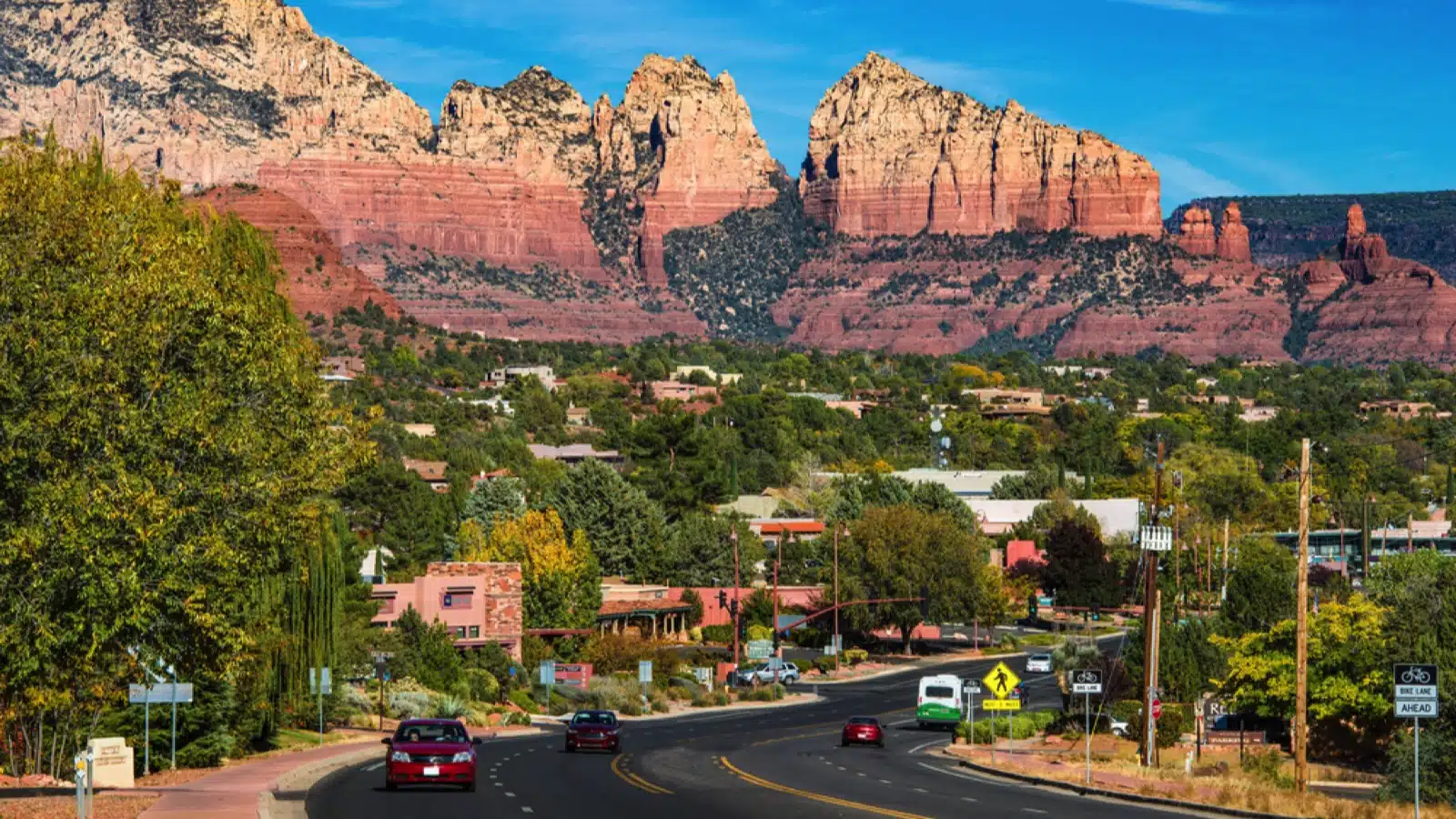As we become more connected, we can feel the influence of wealth and privilege everywhere. They impact many things we love to do. By having more significant financial resources, the wealthy can pay more and drive up prices for things they want, ruining it for the rest of us.
1. Housing Prices

Housing keeps getting larger and more expensive, making it challenging for people to buy starter homes. Wealthy people often buy second homes or invest in markets. Some cities, like Austin, Texas, attracted droves of people, many of whom had the means to pay higher prices for homes in cities. One wrote, “Cities like Austin were never designed for such large populations. The city is now literally a giant playground for the rich, and it’s barely even worth visiting.”
2. Collecting Things

Many hobbyists are collectors who enjoy niches like old video games, vinyl records, classic cars, comic books, electric trains, baseball cards, movie posters, vintage glass, and china. They buy and sell their wares with similarly situated people they’ve known in the trade. However, in recent years, those who have money jacked some of the prices, making it hard for ordinary collectors to expand their hobbies.
3. Beach Condos

Many pointed to beach houses and condos ruined by the rich people in Florida, and anywhere there may be beach areas. According to one person, “They build huge homes right up to the dunes or destroy them, blocking views and attempting to claim the actual beach as their property and put up (illegal) signs saying no trespassing to deter people from walking near their actual property. They use their political power and money to prevent public access with parking lots or shuttles and disturb the nearby wildlife.”
4. Airbnb

For many travelers, Airbnb has been an affordable vacation place for a few nights at about $100 per night and below hotel prices. Renting out your home to Airbnb was a side gig for many families to generate extra income. Seeing the strong demand has led people with the means to buy up properties to rent out for Airbnb at higher prices. Several people felt that Airbnb is no longer cheap, and they prefer to rent a hotel room for the same price and get the benefit of more privacy.
5. Mount Everest

The glory of climbing Mount Everest has grown in substantial proportions for the rich who have the desire to have bragging rights to their friends. Permits alone cost upwards of $13,000, excluding most people who want to climb the mountain from the Nepalese side. The cost for equipment, airfare, accommodations, hiring porters, and more excludes those who may have dreamed about attempting to climb. Some on the forum pointed to the trash the rich leave along the way, angering many for their exploits despite the law in Nepal requiring a certain amount of trash to be brought down by climbers or pay fines. Of course, the rich will pay the fines.
6. Vintage Cars and Pickup Trucks

Once used for its utility for those who worked with their hands, pickup trucks have become the ultimate status symbol for well-off people. However, they use their trucks to do or go anywhere. One person said, “They have driven the price out of sight with options that a working man doesn’t need or want. These work trucks are made instead to feed the egos of men who gave up their man cards with their office job.” Regarding vintage cars and trucks, you can thank Jay Leno for attracting the wealthy to these vehicles.
7. Vintage Clothing

Second-hand clothes from the 1970s and 1980s are more in demand, along with the rise of thrift shopping, which has exploded through the years. Clothing from earlier eras tends to last longer than today’s clothing. Celebrities and the wealthy wear vintage clothes and jewelry as they seek unique, one-of-a-kind items like Chanel suits, fur coats, vintage cowboy boots, vintage lamps, and Hawaiian shirts. The higher demand has caused prices to rise, hurting those looking for fun second-hand clothes.
8. Cheap Food and Ingredients
Photo Credit: Shutterstock
Many people shopped for specific food items that were cheaper, using monkfish, cheap cuts of meat like brisket or pork, and inexpensive ingredients but made great meals. One person shared that his go-to- grocery shopping for cauliflower, cabbage, zucchini, kale, celery, and cottage cheese ‘used to be reasonably inexpensive’ but less so in the past few years, and they became trendy. These days, TV chefs have created a strong demand for these items, which families can’t rely on for less costly meals. The higher inflation also contributed to higher prices.
9. Professional Sports Events

Outpriced by high-priced seats, food, beverages, and parking, many have given up going to live sports venues as its costs detract from enjoying the sports. Instead, forum users are turning to stream all sports, including baseball, NFL, WWE, NASCAR races, and tennis court seats. One said, “For a fun day out with a friend at an NFL game, it will run you around 500 bucks. Or you could watch it on your big screen TV at home, which has better play-by-play and angles than at the game, where you end up watching half of it on a monitor anyway.”
10. Live Music Events

Similar to sporting events, buying tickets for live music is not as affordable as it once was, making people between paying their rent or seeing Taylor Swift or Beyonce. Some are switching to smaller music venues, which are still economical and enjoyable.
11. Cool Artsy Towns

One forum member lamented how he and his friends loved going to quirky, artsy towns like Taos and Sedona and others across the country, visiting the artists and musicians that came to these areas, partly because they were poor. He added that word got around, “Attracting rich people who came in, buying the real estate for second homes, and opening up exclusive boutique-like stores, restaurants, and hotels. They built expensive housing developments and made it so the creative people couldn’t afford to be there anymore.”
12. Thrifting For Resale

Some were nostalgic about their families going to estates and farm sales to pick up cheap things to resell to customers. One person’s father bought boxes of random things, including vintage bottles and dresser handles. He made decent money until there were fewer items to buy because deep-pocket collectors would snatch up everything his father could afford.
13. Buying From Goodwill

Many pointed to how expensive it was to buy clothes from Goodwill these days. It has been a go-to place to pick up lightly used clothing through necessity and survival for some families. However, Goodwill’s clothing costs more, thanks to businesses that buy used clothes like Poshmark.
14. Endangering Species with Trophies

Those who can afford to hire people to take them on a safari often take home trophies like tiger skins or elephant tusks to memorialize their trip. Unfortunately, they are endangering many species and ruining the potential for others to celebrate wildlife.
15. Old Ski Mountains for Families

Small ski mountain resorts were a well-kept secret for many who wanted their kids to get exposure to skiing without having to travel or spend a fortune to go to trendy winter resorts. The old ski mountain places for families were overrun by wealthy groups that bought and revamped many of the older small ski resorts used in small towns.
16. International Travel
Photo Credit: Shutterstock
The best hotels always catered to the wealthy and privileged. However, there were global destinations that were more affordable for the rest of us. Sadly, some destinations, like Tulum, Mexico, have undergone significant changes once the rich claim these areas, molding them into their exclusive playgrounds.
12 Best College Life Hacks That Are Life-Changing
Image Credit: Adobe Stock
Balancing academics, social life, and personal responsibilities in college can be a difficult juggling act. Fortunately, numerous life-changing college life hacks can help you navigate these challenges and maximize your college experience. Whether a first-year student or heading into senior year, these tips can help you streamline your workflow, save time and money, and achieve your goals.
10 Affordable Hobbies You Can Pick Up in College That Could Fill Your Pocket Too
Photo Credit: Deposit Photos
College is an exciting time full of new experiences and opportunities but it can be financially challenging. Finding time and room for hobbies and interests in your budget can be difficult between tuition, textbooks, and living expenses. However, having a hobby can be a great way to relax, unwind, and enrich your college experience. The good news is that plenty of affordable hobbies you can pick up in college won’t break the bank and potentially earn some money as a side gig.
17 Excessively Weird Gen Z Trends We Find Challenging To Understand
Photo Credit: Deposit Photos
Every generation has its distinction despite overlapping with other generations. The young of all ages act feisty and aggressive compared to their parents and grandparents, who have more life experiences than their underlings in their teens and 20s. However, Generation Z, having been raised in a digital world since they were in diapers, is shaping their culture in ways that appear excessively weird to the rest of us and challenging to understand.
College Graduates: Avoid These 13 Common Money Mistakes in Your 20s and Beyond
Photo Credit: Deposit Photos
Congratulations on graduating college and landing your first job! It’s an exciting and scary new chapter all rolled into one. You’ll make some serious money for the first time in your life, but you’ll also be responsible for some adult-sized bills.
Before signing a lease for an apartment or purchasing a new car, avoid the most common money mistakes college graduates make. We have assembled a list of blunders to steer you towards a financially fit future.
10 Things Millennials and Gen Z Surprisingly Copied From Boomers
Image Photo: Shutterstock
How we live, dress, and interact with the world constantly evolves. Each generation brings its unique perspectives and preferences, yet there are times when younger generations find inspiration in the habits and choices of their predecessors. Millennials and Gen Z, known for their distinct characteristics, have surprisingly borrowed a few things from the Baby Boomer generation.
Hi There!
With a passion for investing and personal finance, I began The Cents of Money to help and teach others. My experience as an equity analyst, professor, and mom provide me with unique insights about money and wealth creation and a desire to share with you.








